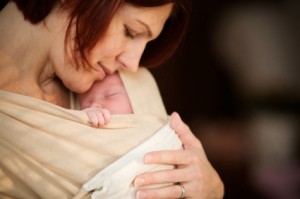 The minute a child is born, his identity begins to form. As he is exposed to different things, he learns how to perceive the world. He learns what is right, what he should not do, what happiness is, and what sorrow means. He observes and then reacts. Most of all, his virgin mind absorbs the information presented to him, thus the people who are around him, the people who guard him as he begins this process, inherit the incredible ability to shape this new human being into anyone they want him to be. Therefore, the minute a child is born, two people suddenly obtain great power, and with that comes great responsibility (to borrow the famous Spiderman phrase).
The minute a child is born, his identity begins to form. As he is exposed to different things, he learns how to perceive the world. He learns what is right, what he should not do, what happiness is, and what sorrow means. He observes and then reacts. Most of all, his virgin mind absorbs the information presented to him, thus the people who are around him, the people who guard him as he begins this process, inherit the incredible ability to shape this new human being into anyone they want him to be. Therefore, the minute a child is born, two people suddenly obtain great power, and with that comes great responsibility (to borrow the famous Spiderman phrase).
As Catholics, this formation of a child’s mind is extremely important for the sake of the child’s soul and developing spiritual life. The Catechism of the Catholic Church says of the parental accountability: “…’The role of parents in education is of such importance that it is almost impossible to provide an adequate substitute.’ The right and the duty of parents to educate their children are primordial and inalienable… Parents have the first responsibility for the education of their children…” (CCC 2221/2223). Hence, when two married Catholics have a child, they immediately assume the charge of raising him in the faith, ensuring that he is taught how to live both through vocal guidance and good example. In fact, the Catechism goes on to say that parents are not just obligated to set the example for their children, but have a “grave responsibility” to do so (CCC 2223).
The Catechism gives new parents a guide to what kind of environment and direction helps form children in the ways of Christ. The first thing stressed is the necessity of “…creating a home where tenderness, forgiveness, respect, fidelity, and disinterested service are the rule,” (CCC 2223). By creating such an environment, the parents give their child a nourishing ground to build upon and thrive within, thus helping him to see that such virtues are good, and the things that deviate from them are to be avoided. A home like this cultivates and encourages faith and morality, and directs the child towards a love of Christ-like actions.
In this home, the education of the child is to be the top priority. The child must be given the proper catechesis necessary for a true growth in the faith. Without this, the child could easily fail to find his identity in God, and later in life neglect seeking to do God’s will above his own, not knowing that God does have a will for him: “…Parents have the mission of teaching their children to pray and to discover their vocation as children of God…” (CCC 2226).
As a result of this wholesome environment and godly education, the child grows in holiness and devotion, seeking to exemplify the lessons of his childhood. And even if the child, in his later years, rebels against his upbringing, his parents will be able to rest assured knowing that they did everything they could to raise him well, and pray that memories of his faith-filled years at home will eventually draw him back.
“Through the grace of the sacrament of marriage, parents receive the responsibility and privilege of evangelizing their children,” (CCC 2225). This is the duty and quest of the Catholic parents around the world, the parents militant. As they seek to start their families, may they ask the parents triumphant in Heaven to intercede for them, that they might seek to raise not just well-mannered children, but shining saints.
This article originally appeared on Ignitum Today and is used with permission.



